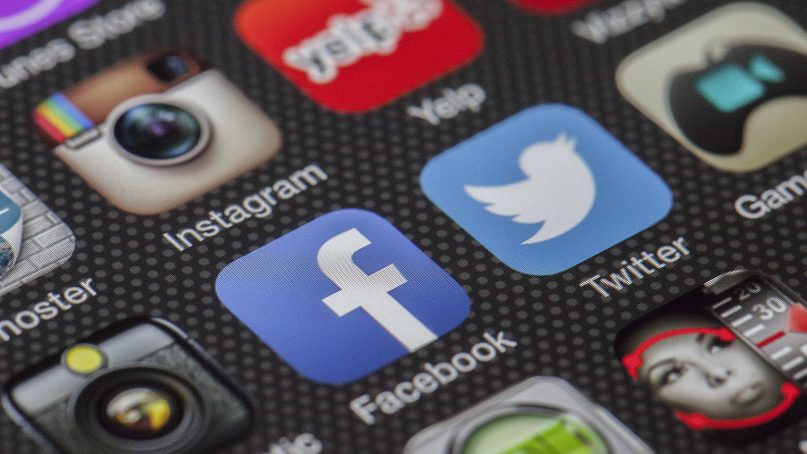(RNS) — For the second year in a row, I gave up Instagram for Lent. Social media, particularly visual social media, is a particular indulgence of mine, a vice to which I am often particularly vulnerable: the desire to be seen, to create a public and visually arresting narrative of my own life, to create myself through images of vintage clothing (or historical costuming in Venice).
Last year I took it further, giving up Facebook and Twitter as well, but between the increasing necessity of Twitter to the practice of journalism and having a book coming out this spring, giving up all social media isn’t practical. Anyway, while I appreciate Twitter and Facebook’s facility networking, I am less addicted to the one’s river of argument and snidery, and to the other’s mirror: A lifelong struggle with eating disorders and body image issues make every tagged photograph of me on Facebook a referendum on whether I have been sufficiently good, or at least disciplined, that week.
No, for me, Instagram is the true sacrifice. The desire to create a digital avatar, an online doppelgänger who is better, is and has been, for much of my life, inextricable from my difficulty with being present in a given space. The person I am online, not a body but an idea of a body, is constantly part of a narrative that always exists for others, rather than privately in space. It exists to be seen, to be experienced, rather than to see and experience itself.
I am cautious, of course, about the notion that Lent doubles as a form of self-care or self-betterment: that, by fasting or “giving up” something bad for us, we can improve our health and our lives. Such a vision of Lent renders it little more than a spiritualized diet regime: an excuse to cut chocolate or booze calories with an Almighty watcher ensuring we don’t slip a hand into the cookie jar. At its core, the sacrifices of Lent are designed to focus our attention on God, rather than worldly distraction.
So I am wary of my Lenten sacrifice becoming merely a digital detox, something I have aimed to correct through a more active, and consistent, Lenten prayer life. But as I have attended to the dangers of social media and the lure of creating a disengaged self in the dispassionate realm of digital space, I have been struck that we need a new, and better, vocabulary to discuss the characteristic sins of 2020.
Lent has long been about fasting and physical self-denial. To give up red meat, or alcohol, or dessert — the traditional sacrifices — rests on a fundamental of human frailty as appetitive: We want too much; our bodies’ desires are, if not bad and shameful, then nevertheless base and excessive.
On Mardi Gras, or Fat Tuesday, the final day before the start of Lent, we drink too much and carouse until the wee small hours and make delicious pancakes, all ready to begin our regimen of asceticism the next day.
But as “self-care” becomes ubiquitous in our wider culture, as the discipline inherent in the regime of “best self-ism” and the mandate to personal “wellness” become inextricable from culturally sanctioned eating disorders — we fast, exercise, photograph ourselves and post it, divorcing ourselves not only from our bodily appetites but also our bodily presence — it’s worth asking whether we need to broaden the scope of discourse available to us about sin, and fasting.
In a world in which young men’s ideas about sex are increasingly shaped by pornography and where many young people are in fact having less sex, while fantasizing about disembodied limbs and NSFW Tumblr GIFs — the language of bodily abstention seems incomplete.
Abstention can, of course, serve a morally and theologically serious purpose: fasting as it has traditionally been understood. But abstention, too, in a society that increasingly fetishizes diet, discipline and digital incorporeality, can also be a form of cybernetic anorexia. We resist eating, drinking, being physically intimate with one another, out of a notion of “self-care” and “wellness” that at its core is far more about the six-packs we can one day post to our Instagram stories than it is about focusing on a God who exists outside our own selves.
The sins of disembodiment, of abstinence, are as potentially noxious — and, in 2020, perhaps more tempting — than the sins of the flesh.
My hope for Lent is that my abstention from social media isn’t merely a “digital detox,” or a form of fasting designed to break a “digital addiction.” Rather, I hope that it can double as a call to presence. I want to remind myself that to be fully embodied, fully present in the world is in itself an act of worship, and that the Christian life is one modeled on messy, bodily, incarnation.
I hope my fast, in that sense, doubles as feast: an invitation, and a reminder, that to eat, to drink, to share a table with other human beings in an imperfect but still divinely created world is an act of commitment to that world. In giving up social media, I hope to turn my attention to, and not away from, my flesh.






